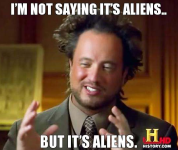spikepipsqueak
My Brane Hertz
Doc by Mary Doria Russell.
I loved The Sparrow by this author, and this book about Doc Holliday doesn't disappoint.
I loved The Sparrow by this author, and this book about Doc Holliday doesn't disappoint.
I plan to read war and peace when I am retired.
Have you ever had a riot?" I ask a recruiter from a prison run by the Corrections Corporation of America (CCA).
"The last riot we had was two years ago," he says over the phone.
"Yeah, but that was with the Puerto Ricans!" says a woman's voice, cutting in. "We got rid of them."
"When can you start?" the man asks.
I tell him I need to think it over.
I take a breath. Am I really going to become a prison guard? Now that it might actually happen, it feels scary and a bit extreme.
I started applying for jobs in private prisons because I wanted to see the inner workings of an industry that holds 131,000 of the nation's 1.6 million prisoners. As a journalist, it's nearly impossible to get an unconstrained look inside our penal system. When prisons do let reporters in, it's usually for carefully managed tours and monitored interviews with inmates. Private prisons are especially secretive. Their records often aren't subject to public access laws; CCA has fought to defeat legislation that would make private prisons subject to the same disclosure rules as their public counterparts. And even if I could get uncensored information from private prison inmates, how would I verify their claims? I keep coming back to this question: Is there any other way to see what really happens inside a private prison?
The Martian 10/10
Andy Weir
A well crafted hard science book about Robinson Crusoe on Mars. Just read it. Yes, the book the film is based on. I haven't seen the film so I can't comment on how similar they are. But the book is amazing. If you like sci-fi you must read.

